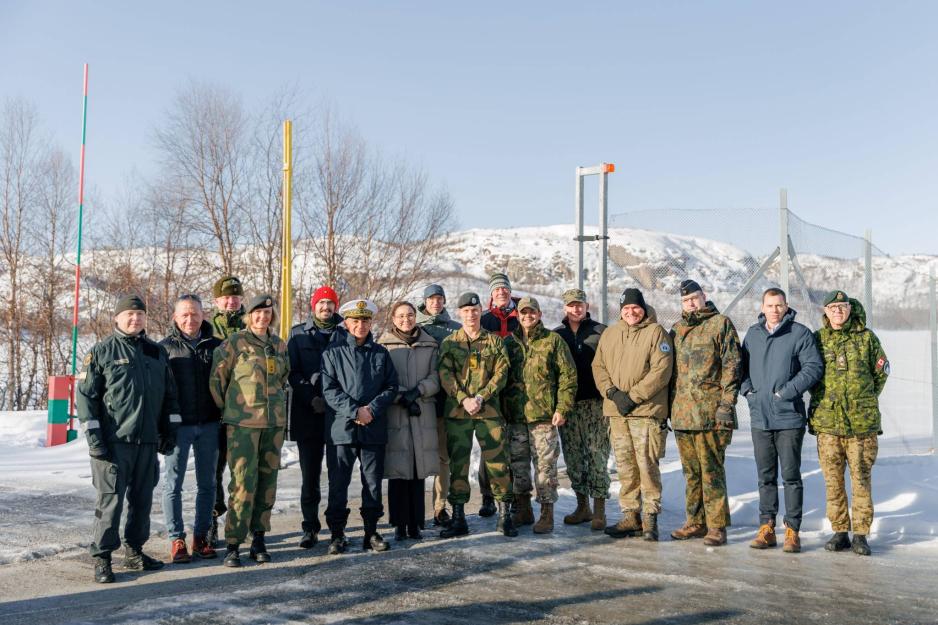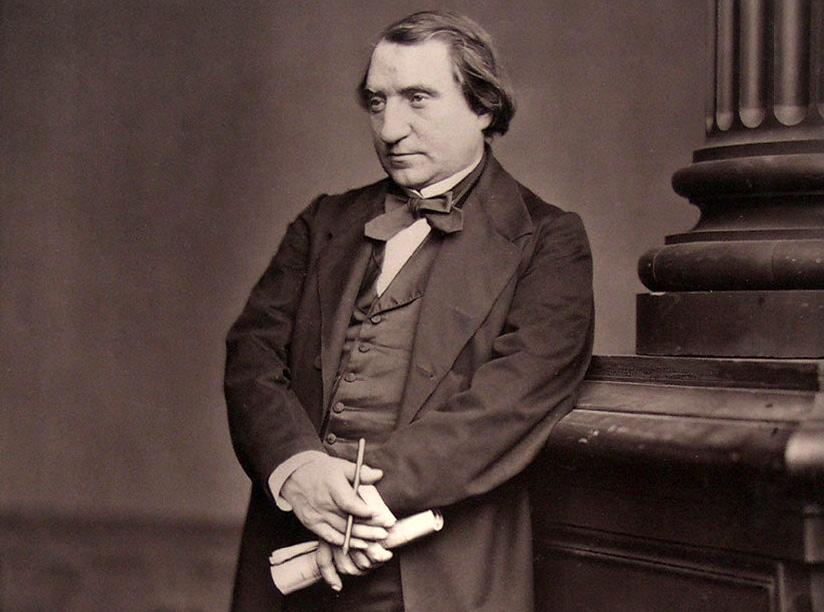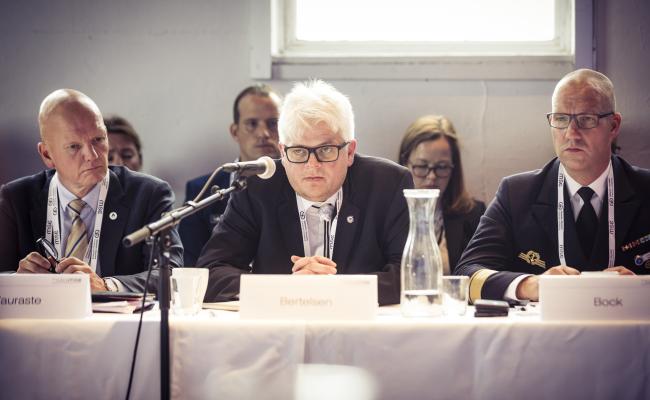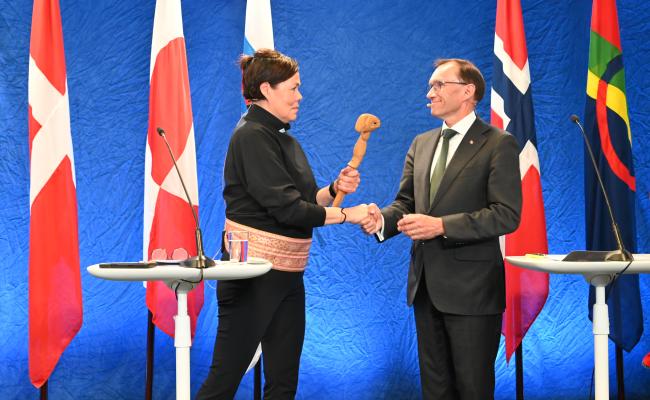Op-ed: Arctic Exceptionalism: What It Was, What It Could Be - But Should It Be?

Arctic Exceptionalism in effect on the Norwegian-Russian border station as part of the Arctic Security Forces Roundtable in March 2025: Flag officers from the seven western Arctic countries and observer states France, Great Britain, Germany and the Netherlands in the ASFR format, as well as representatives of the North American Air Defense Command NORAD, the US Northern Command and NATO's Joint Force Command Norfolk. (Photo: The Norwegian Armed Forces)
This is an opinion piece written by an external contributor. All views expressed are the author's own.
The boycott of Russia began right after its invasion of Ukraine in 2022. As a scholar, originally from Turkey, I was reminded of my own stance after the Erdoğan regime’s post-2016 crackdown, I strongly supported cutting all forms of cooperation with Turkey, and to some extent, I still do.
Of course, the war in Ukraine is not comparable. Russia’s invasion is a brutal act of aggression against a sovereign neighbor, with devastating consequences.
Still, the Turkish case taught me that cutting ties doesn’t necessarily diminish authoritarian influence. On the contrary, when every domain of public life, including science, culture, and education becomes securitized, the risk is not containment, but entrappedin authoritarian populism.
What gets silenced are the very channels of dialogue, between artists, scientists, environmentalists, and civil society. And when all those voices are silenced, it becomes a way of handing over our everyday agency to state actors.
That reflection stays with me while thinking about Arctic cooperation. The question is not whether the Russian state should be awarded, but whether other forms of diplomacy, below or beyond the state, still matter.
What kind of peace should be imagined when speaking of a “restored” Arctic exceptionalism?
Arctic exceptionalism was never a legal framework but a political narrative and perhaps, it will be again.
Last week, a conference in Washington, DC, titled “Restoring Arctic Exceptionalism”, brought together lawmakers, ambassadors, and policy experts to discuss the prospects of renewed cooperation in the Arctic.
Based on that title, one might ask: what kind of peace should be imagined when speaking of a “restored” Arctic exceptionalism?
Rather than focusing solely on types of conflict or security, it may be more important to clarify what kind of peace is at stake. Conflict is everywhere, and security has become an everyday issue.
So, is the vision one of Grotian peace based on law and cooperation or a Hobbesian turn based on fear and survival?
Also read (The text continues)
This is an era where personalities shape international order, often breaking the foundations of Arctic exceptionalism. Ukraine has become a quagmire for Russia. Vladimir Putin cannot withdraw for fear of losing power.
At the same time, Donald Trump’s vision of U.S. security, filled with isolationist suspicion toward international institutions, is reshaping global norms. Today, personality defines politics, not only in the world, but also in the Arctic.
What It Was
The cooperation between Russia and the United States after the Cold War strongly supported the idea of Arctic exceptionalism, though not without the important contributions of the Nordic states and Canada.
However, after the rupture in 2022, no cooperation mechanism that includes Russia is functioning at full capacity. So, how do actors still perceive Arctic exceptionalism, or a redefined version of it?
Based on discussions at the recent event in DC, at least three dominant narratives appear to shape current understanding.
Grounded not only in power, but in engagement; not only in interests, but in empathy.
The first focuses on how climate change impacts the region, framing it as a driver of political, security and environmental challenges, relying on overly direct causal reasoning that bypasses nuances and fails to meaningfully include indigenous and local communities.
The second emphasizes the necessity of categorizing cooperation and security beyond military frameworks. The third is the indigenous conceptualization of exceptionalism, which centers on nature, relationality, and empathy.
The sense of relational interdependence is precisely what opens the door to a new Arctic exceptionalism, one grounded not only in power, but in engagement; not only in interests, but in empathy.
What It Could Be
Therefore, in the new Arctic exceptionalism, if it ever existed or is to exist again, the alternative lenses are not new, but now demand closer attention.
While Arctic cooperation has long relied on the work of indigenous communities, scientists, and civil society, the dominant narrative of Arctic exceptionalism has often centered on great power diplomacy, particularly between U.S and Russia.
Looking ahead, a broader and more inclusive foundation seems necessary.
Also read (the text continues)
As “good fences do not always make good neighbors”, rigid borders and fixed norms risk becoming counterproductive when they replace dialogue and shared engagement.
Freeing everyday life and civil society from excessive state control, and empowering them, will help pave the way for more resilient forms of cooperation.
One lens for imagining such alternatives emerges from intersectional feminism. When decision-making is concentrated among state elites, especially in today’s era of strongman politics, it often reproduces the very hierarchies it claims to dismantle.
Feminist scholars have long emphasized that peace is not merely the absence of war, but the absence of fear. It is the presence of justice grounded in reciprocity and the lived experiences of those most affected by insecurity.
In the Arctic, this includes indigenous women navigating precarity, small-scale fishers negotiating extractive pressures or queer indigenous voices working at the intersections of multiple exclusions.
Equity discourse risks becoming rainbow-washing
Through this perspective, a new Arctic exceptionalism opens space for alternative ways of knowing and relating.
Much like environmental initiatives can fall into greenwashing, equity discourse risks becoming rainbow-washing, employing the rhetoric of visibility without redistributing power.
A more grounded vision of Arctic governance would center the priorities and knowledges of those historically excluded from shaping its future.
While intersectional approaches offer ways to rethink Arctic exceptionalism from below, institutional actors like the Nordic states continue to define its parameters from above in today’s shifting geopolitics.
In this neo-Arctic exceptionalism, the role of Nordic states, especially Norway’s claim to be the champion of multilateralism, may play an even more important role in maintaining institutions as buffer zones. The absence of cooperation does not automatically mean military conflict.
Also read (the text continues)
However, the weakening of institutional roles leads to more hard power discussions, fewer soft power ties, and greater risks of tension, misunderstandings, and miscalculations.
Therefore, in the new version of exceptionalism discourse, the Nordic role would be more important than the great powers.
The value of connection, the necessity of inclusion, the obligation to work together on climate challenges, and the principle of multilateralism highlight where the Arctic remains exceptional.
As Senator Murkowski said during last week’s conference, “Cooperation is not given, it is a choice.” Excluding security topics from the Arctic Council was also a political choice.
Maybe it is time to rethink this exclusion, or to consider creating space for controlled security dialogue instead of only focusing on NATO, which can easily be influenced by regional or non-Arctic political agendas.
For example, Erdoğan’s delay in approving Finland and Sweden’s NATO memberships, or Trump’s demand to raise NATO spending from 2% to 5%, have clear impacts on Arctic governance, including societal sectors that may face budget cuts.
But Should It Be?
One form of exceptionalism ends where another begins. Especially today, temporality matters more than ever. As contexts shift, so do the reasons for exceptionalism.
A potential new era of Arctic exceptionalism may emerge in a global context shaped by leaders like Trump, Putin, Erdoğan, Meloni and Modi, figures who tend to bypass multilateralism, favor bilateralism, and delegitimize institutional frameworks.
Their leadership styles are marked by transactional diplomacy, an “us vs them” binary, and a concentration of executive power.
In such a climate, institutions become weaker, consensus becomes harder, and cooperation is increasingly filtered through personal agendas rather than shared commitments.
Why should the Arctic remain exceptional?
Arctic governance, once upheld as a model of multilateralism and scientific cooperation, risks melting into this broader global pattern of institutional erosion.
So, why should the Arctic remain exceptional? To preserve cooperation that manages tensions between state and non-state actors and allows for rapprochement based on balancing interests and values. Arctic peace doesn’t emerge from sameness, it is made by negotiating differences.
Or to borrow from French historian Ernest Renan’s words on nationhood: peace, too, is a “daily plebiscite”.
Cooperating with the Kremlin today is undeniably difficult. Russian militarization in the Arctic has remained at the status quo or declined as it reallocates forces to Ukraine.
Its ambitions in the Middle East have faded too, largely due to limited resources and the shifting dynamics in Syria, where the Assad government, long backed by Russia is increasingly isolated. In this context, Russia needs the Arctic.

Portrait of Ernest Renan (1823-1892). Renan was a French philosopher who became very famous for his book Vie de Jésus (Life of Jesus) from 1863.(Credit: Antony-Samuel Adam-Salomon – The Art Institute of Chicago, Public Domain)
And selective engagement with Russia, particularly to ensure safety in areas such as shipping, energy, fisheries, communication, may still prove useful. This doesn’t imply condoning aggression or legitimizing invasions. But cooperation doesn’t have to happen at the state level.
Non-state actors can still collaborate in neutral spaces to keep environmental, cultural, scientific and societal dialogue open, not for geopolitical grandstanding, but for regional stability.
This is no easy task, especially as many of these organizations have been disbanded or labeled “foreign agents” under Kremlin pressure, limiting their capacity to engage.
Trust takes time. And that’s exactly what a neo-Arctic Exceptionalism needs; time and willingness to give it a second chance. What is at stake is not simply the restoration of a rules-based order alone, but also balancing of normative commitments with the region’s lived realities and necessities.
So, Arctic peace is neither Grotian nor Hobbesian, but is relational, unfinished and shaped by those who live it, not only those who govern it.




